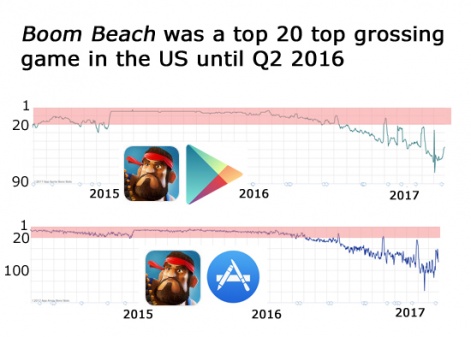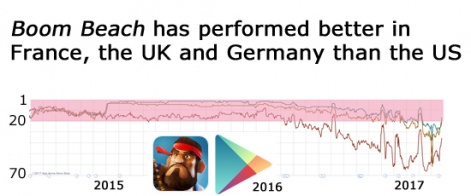When it came out, Race for the Galaxy didn't look like my ideal card game. Whatever good stuff it had, even fans freely admitted that it didn't have a lot of interaction. And what I wanted most back then, and still put a premium on now, was interactive games. But back then we didn't know the iPad was coming, or that mobile board games would become a huge thing. And if there's one thing that makes a __game suitable for a mobile adaptation it's lack of interaction.
Someone did manage to persuade me to play Race for the Galaxy. And to my surprise, I enjoyed it far more than I expected. Each turn, each player picks an action such as settling a planet or developing a technology. All players then get to do all the chosen actions but the one who picked it gets a bonus. Most actions let you play a card from your hand: settle, for example, is just an excuse to play a planet card. You pay for your played card by discarding a number of other cards equal to its cost.

This straightforward system veils quite a potent economic engine. Having to pay for things with cards means you run out quite fast. To refill your hand you either have to take the weak explore action or generate goods on your planets and trade them. This takes two actions and, of course, lets other players do the same thing. Plus victory points are a separate pool which you need to fill as well as keeping your economy afloat. It's all about efficiency, and the __game can be punishing on those who fail to make the best of their cards.
What makes Race stand out from all the other, tiresome economic engine games in the world is its theme. One could turn this into an abstract point salad, but that would be a waste. The card art and effects and the turn by turn play generate a tangible sense of building, of developing an interstellar empire. The fact you're always working from a new, random hand of cards keeps the game forever fresh. And the design uses every available opportunity to tweak effects into interesting combos.
So we'll forgive it its relative lack of interaction. Especially now you can play it in this cracking mobile version.

At first, it might not seem all that cracking. On a phone-sized screen the cards are not easy to see. So a new hand means a tiresome tap by tap examination of each. The app hides most of other player's tableaus unless you tap to inspect them. And if you're new to the game the tutorial won't take you the whole way. It covers off all the basics, but to understand the game you'll need to go through the rules which, usefully, are available through the app.
With time, though, these minor irritations fade into the black vacuum of the cosmos. Race for the Galaxy also attracted some criticism for its heavy use of detailed iconography, which took some getting used to. Here, the decision comes into its own: once you learn the lexicon, those icons let you understand cards at a glance, without the need to examine each. And of course a couple of plays will be enough fix the mechanics in your mind.
Good job too, because everything else about this adaptation is stellar. You can play against AI players in up to three levels of difficulty. I am not particularly good at or experienced with this game. But after getting to grips with this version, I found Medium capable of giving me a run for my money. Hard should challenge more competent players although it won't be up to beating the best human opponents.

No worries if that's you, though, since there's a smooth online gateway for asynchronous games against other humans. There are even in-device notifications to tell you when it's your turn.
As if that were not enough, three of the game's expansions are also available. These add additional worlds and card drafting and one of them improves the lack of interaction with takeover rules. It's easy to flip them on and off for each new game as you desire.
If you wanted to pick fault with this, it would be a lack of any kind of single-player campaign. But that's a nice to have, an extra feather in the hats of the creme de la creme of mobile adaptations like Galaxy Trucker. It isn't necessary in an economic game like this. And however you feel about economic games - and player interaction - this version of Race of the Galaxy is good enough to be worth your cosmic dollars.

